| |  | | | MEF's D.C. Success; The Battle for Israel; Turkish Perfidy By Winfield Myers ● Sep 19, 2025 Smart Brevity® count: 8.5 mins...2245 words MEF's years-long efforts to see Iran-backed Shi'a militias in Iraq designated as Foreign Terrorist Organizations came to fruition this week, as the State Department moved against part of the Islamic Resistance in Iraq. The administration's actions reward MEF's grassroots activism while protecting American troops. In a recent MEF Podcast, Victoria Coats argued that Israel's war in Gaza is ultimately a battle for Western civilization. Eric Navarro writes that Israel victory is the only path to peace, warning that "half-measures lead to quagmires." We next devote three articles by Michael Rubin, Amine Ayoub, and Abhinav Pandya to analyzing—and dealing with—Turkey's years-long move from reliable ally to Islamist threat. Raymond Ibrahim provides the history of the now-controversial St. Andrew's flag, while Amine Ayoub warns of Russian moves to control Libya and Tunisia's turn toward authoritarianism. | | At MEF's Urging, U.S. Designates Iran-Backed Iraqi Militias as Terrorists 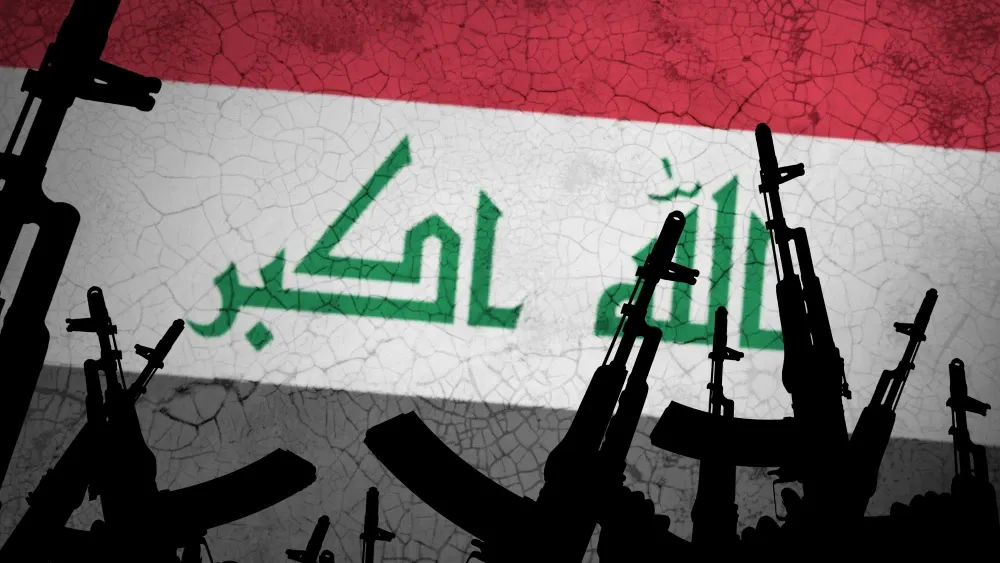 News from the Middle East Forum PHILADELPHIA—September 19, 2025—The U.S. State Department has designated four Iran-backed Shi'a militias as Foreign Terrorist Organizations, following years of advocacy by the Middle East Forum (MEF). Why it matters: These militias—part of the Islamic Resistance in Iraq—are not just regional threats; they signify Iran's broader strategy to destabilize the Middle East and challenge Western influence. -
These militias pose significant threats by attacking U.S. bases and launching missiles at Israel. -
MEF's advocacy highlights the need to counter Iran's proxies, which threaten both local stability and global security. MEF's actions also included mobilizing supporters for legislative action and influencing the National Defense Authorization Act. Geopolitical impact: This designation disrupts Iran's ability to project power through proxy militias, altering the balance of power in the region. The stakes: The move sends a strong message that the U.S. will not tolerate proxy wars that undermine international peace. To read the full press release, click here. | | Victoria Coates: The Battle for the Jewish State: How Israel and America Can Win 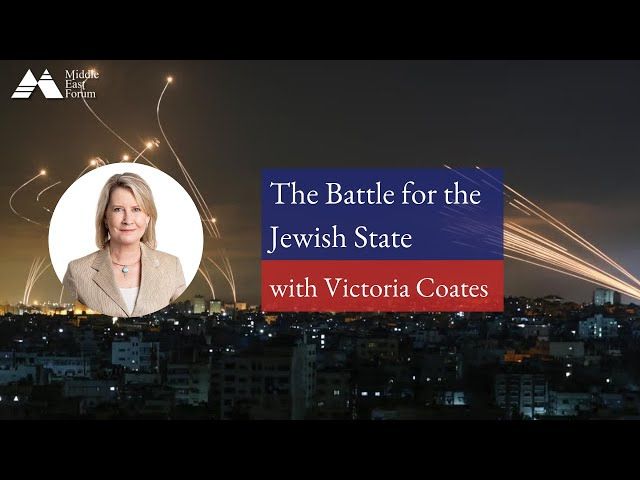 By: Marilyn Stern Victoria Coates, VP of the Davis Institute for National Security of the Heritage Foundation, discussed her book, The Battle for the Jewish State, on a recent Middle East Forum Podcast. Why it matters: Coates emphasizes the urgent need to confront antisemitism, which isn't just a distant issue but a pressing concern for American society. The big picture: Coates argues that the Iranian regime uses Gazan Arabs to destabilize Western democracies, targeting both Israel and America. What's next: To move forward, Coates suggests focusing on stabilizing conditions in Gaza and recognizing the battle for Western civilization. -
Initiatives like the Gaza Humanitarian Foundation could pave new paths. -
But the key "is that for American, and Israeli, and broader audiences to recognize that this is a battle both on Israel—a war on Israel—and a war on the United States, and ultimately [a battle] for Western civilization." To read the full summary and watch the podcast, click here. | | 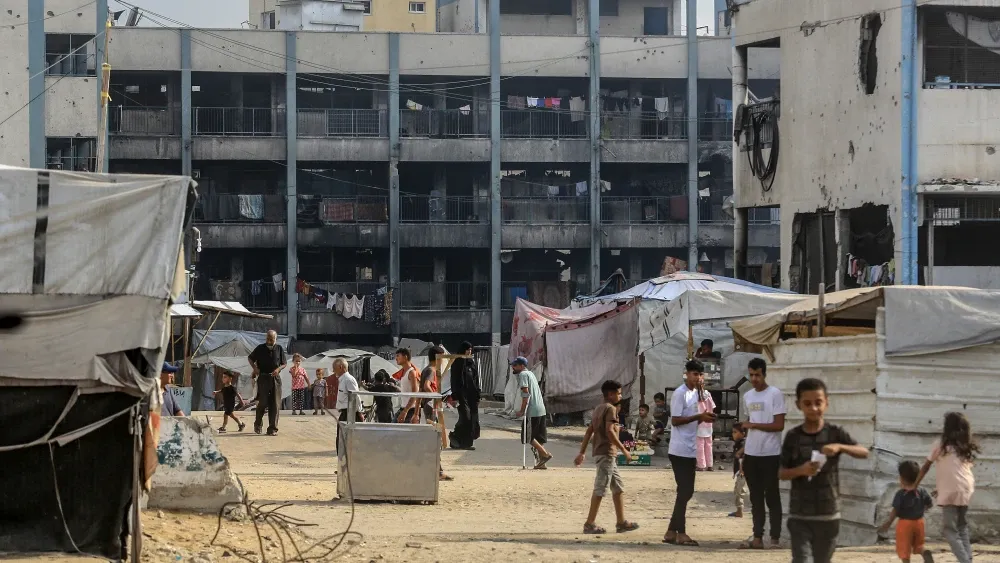 By: Eric Navarro As Israeli forces advance into Gaza City, the critical question is what follows their operational control. Why it matters: Historical precedents show that without strategic planning, tactical victories can erode. Strategic imperative: Israel must avoid past half-measures and ensure full control of Gaza to secure long-term peace. Seize the moment: With U.S. support, Israel has a unique opportunity to decisively defeat Hamas and deter future threats. The stakes: Arguments against decisive victory are arguments for endless conflict. It is an argument for suffering without resolution. -
What should matter most is destroying the enemy and controlling the ground to prevent the enemy from coming back. -
Half-measures lead to quagmires. They allow adversaries to survive battlefield losses and persist. Terrorist groups are adept at absorbing these temporary blows and carrying on their cause. The cycle of war will continue. -
The only option for peace is to seize the objective and hold it until the cause is defeated. To read the full article, click here. | | Should the Foreign Missions Travel Controls Program Extend to Turkey? 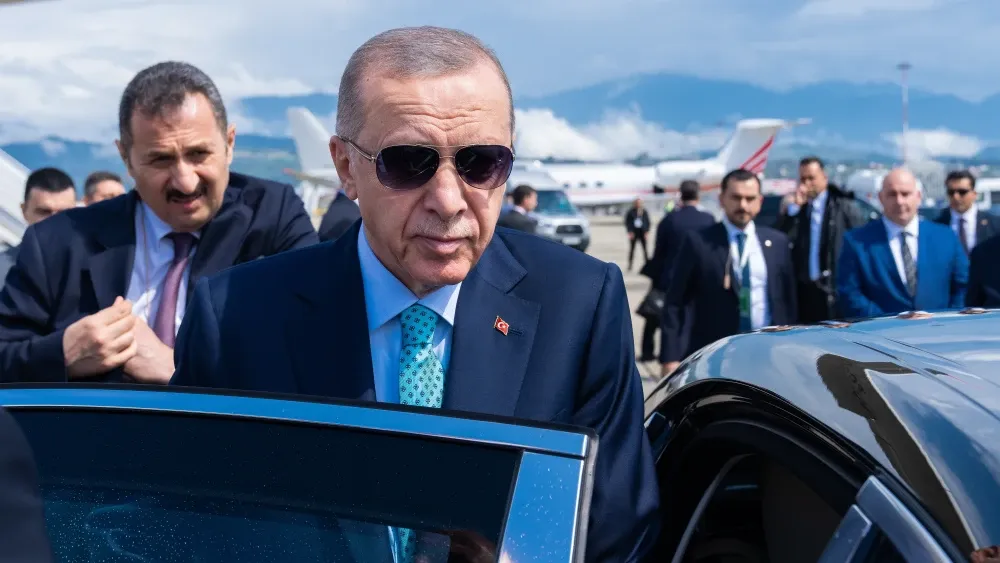 By: Michael Rubin The 1982 Foreign Missions Act aims to prevent hostile countries from using diplomatic privileges for espionage or terrorism. Why it matters: Turkey's increasingly aggressive stance, including support for Hamas and targeting of dissidents, raises concerns about their diplomatic activities in the U.S. -
Erdoğan likens Israeli Prime Minister Benjamin Netanyahu to Adolf Hitler, and calls Israel a "terror state" that seeks to sow "chaos and instability" in its quest to "Greater Israel." -
Erdoğan has floated the possibility of using the Turkish military against Israel. -
Today, Turkey-based Hamas leaders plan more terror attacks on the Jewish state than Iran-based Hamas attacks. Following the October 7, 2023, Hamas massacre in Israel, Turkey arguably became more important to Hamas than either Iran or Qatar. Strategic implications: Applying travel restrictions to Turkish diplomats could hinder their ability to harass dissidents and enhance U.S. security. The stakes: While Turkey is a NATO member, U.S. safety should be paramount. It's time to put Turkish diplomats on a leash. To read the full article, click here. | | Qatar and Turkey Weaponize 'Jihad' for Geopolitical Power in Dangerous Alliance 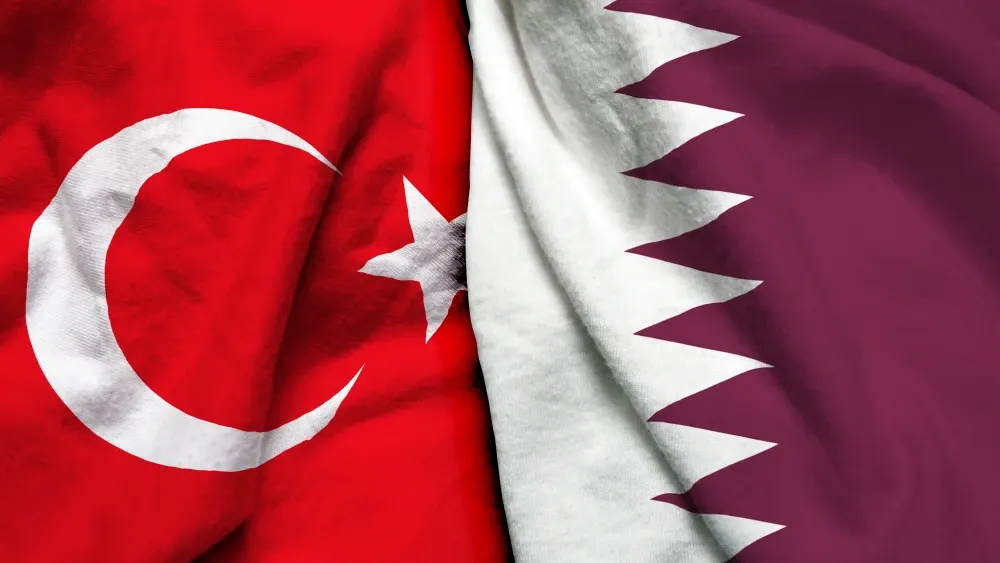 By: Amine Ayoub The "Islamic and Humanitarian Responsibility: Gaza" conference in Istanbul, organized by the International Union of Muslim Scholars (IUMS) and Turkey's Foundation for Islamic Scholars, is a strategic Qatari-Turkish power play. Why it matters: This isn't just a humanitarian gathering—it's a calculated move to weaponize religion for geopolitical dominance. Strategic implications: The IUMS openly calls for jihad, turning religious duty into a political weapon and destabilizing the region. The bottom line: In sum, the Istanbul conference was not an innocent gathering of scholars but a coordinated act of state-sponsored incitement. -
The Qatari-Turkish axis, leveraging the ideological authority of the IUMS, is using religious networks to project influence and challenge its rivals. -
This coordinated effort, which seeks to mobilize Muslims globally, poses a direct threat to stability and exposes a strategic inconsistency in Western policy toward states that serve as diplomatic partners while simultaneously funding extremist networks. To read the full article, click here. | | Turkey Targets Nepal as Part of Its Growing South Asia Strategy 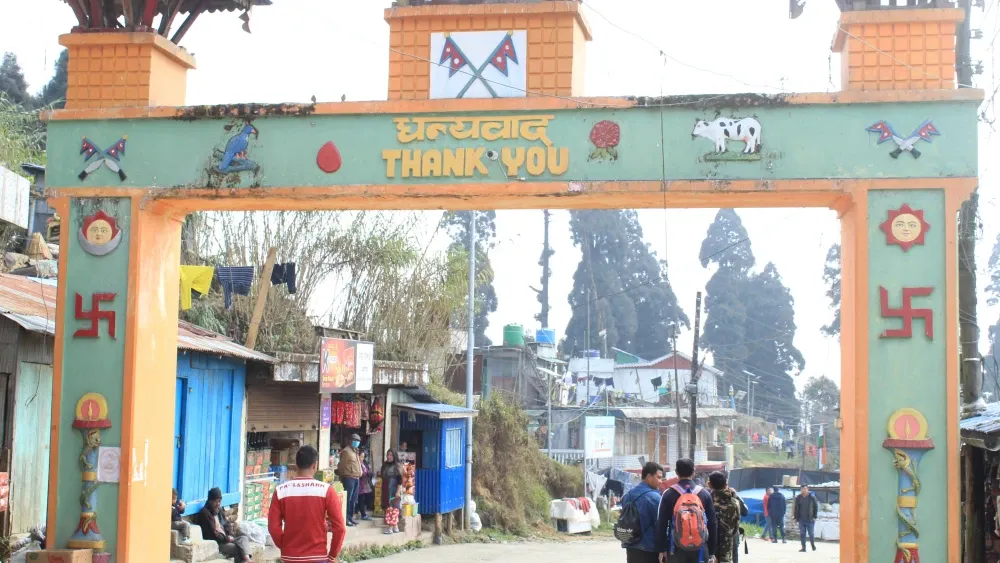 By: Abhinav Pandya Nepal, a predominantly Hindu nation, is at the center of Turkey's pan-Islamist ambitions, raising alarms for regional stability. Why it matters: Turkey, through the Himalayan Education and Welfare Society, channels significant funds to influence Nepal's demographics and spread Islamist ideology. Strategic implications: Turkish-backed entities in the India-Nepal border region pose a direct threat to India's security, with intelligence reports highlighting radicalization and infiltration risks. The stakes: The entry of India's other adversary, Turkey—with its superior drone technology, intelligence footprint, and nominally private paramilitaries like SADAT that have a history of enhancing the capabilities of local terror groups—should be a serious concern for India and the West more broadly. To read the full article, click here. | | The Iraqi Kurdish Leaders' Bloody Legacy in the Name of Kurdish Nationalism 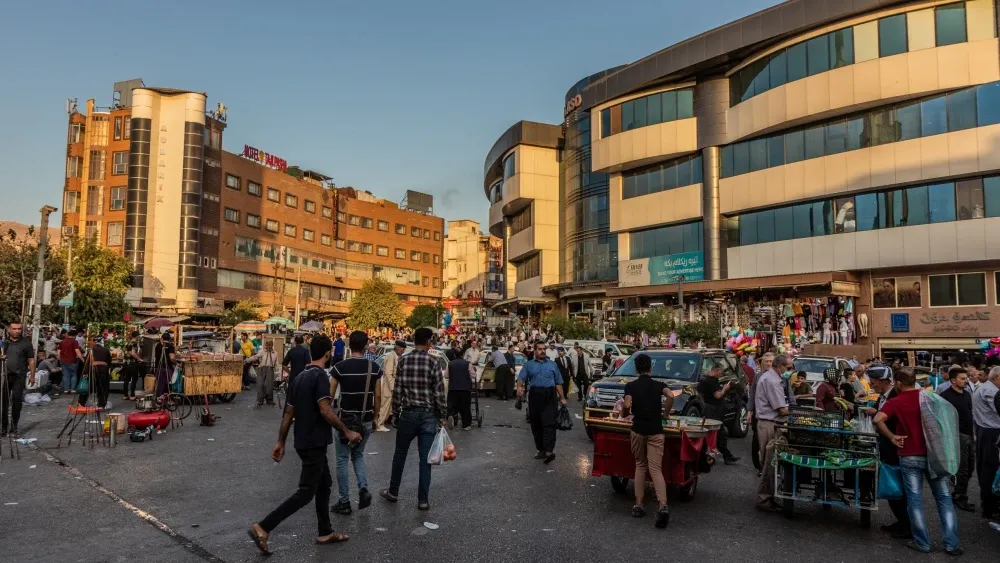 By: Kamal Chomani The armed clash at Sulaymaniyah's Lalezar Hotel between Patriotic Union of Kurdistan leaders underscores a persistent cycle of Kurdish political violence. Why it matters: These internal conflicts extend beyond the region, impacting Middle Eastern stability and complicating international relations. Geopolitical context: Kurdish infighting creates vacuums exploited by neighboring states and non-state actors, disrupting efforts for peace and cooperation. The stakes: Without a shift towards non-violent political solutions, the cycle of bloodshed threatens not only local stability but also regional security. To read the full article, click here. | | England's St. George Flag: Forged in Centuries of Warfare Against Islam 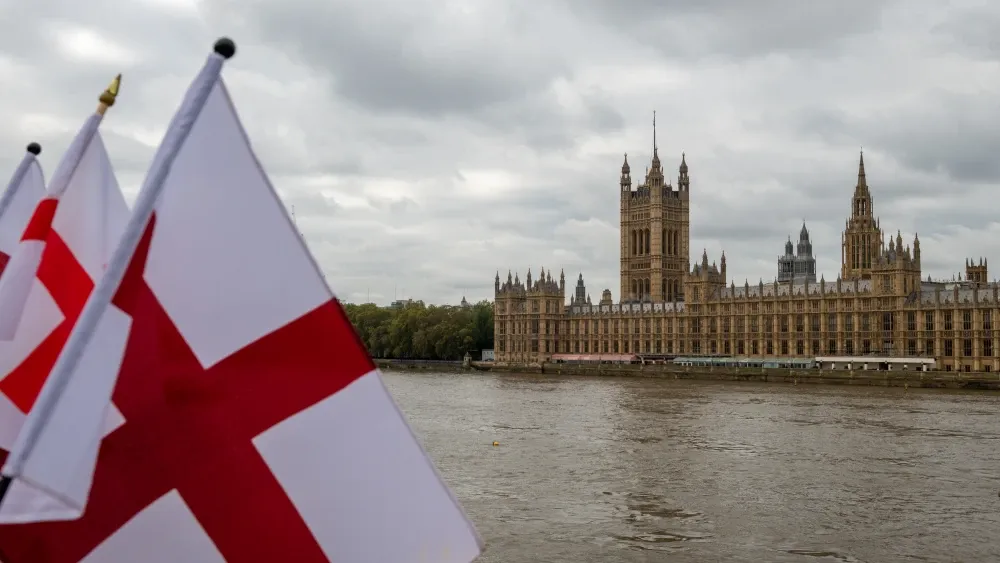 By: Raymond Ibrahim The red cross of St. George, England's oldest flag, is embroiled in controversy amid the nation's migrant crisis, reflecting a deeper historical struggle. Why it matters: The flag, once a symbol of defiance against Islamic incursions, now mirrors modern fears of cultural erosion and national identity loss. Historical context: The St. George flag, rooted in the Crusades, embodies the militant defense of Christendom against Islam. The stakes: The point is this: the St. George flag speaks far more directly to England's present Muslim migrant crisis than most Englishmen who wave it — or denounce it — can begin to comprehend. To read the full article, click here. | | The Cost of Delusion: The Global Threat in Libya 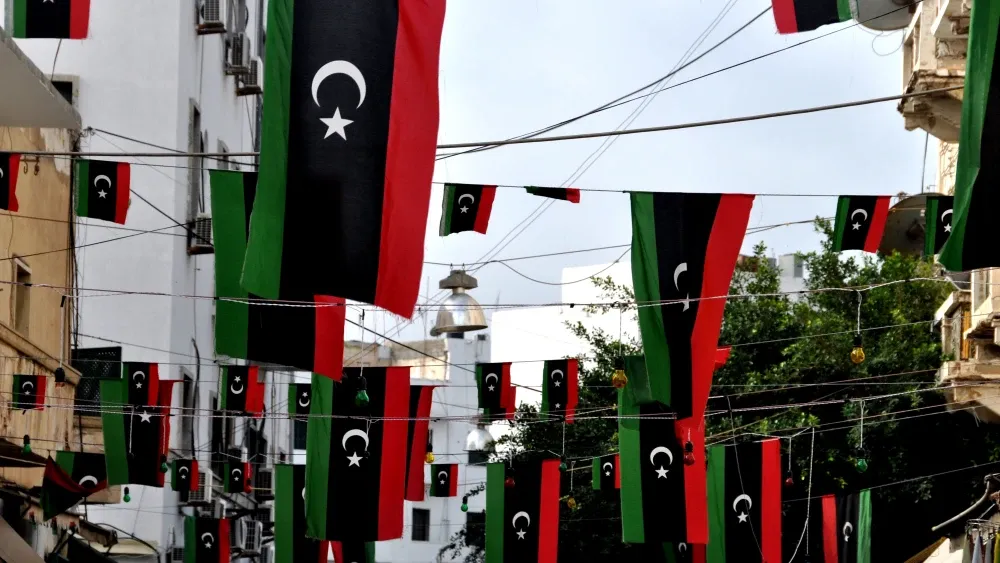 By: Amine Ayoub The U.N.'s slow "roadmap" for Libya is no match for Russia's aggressive strategy to establish dominance in North Africa. Why it matters: Russia is exploiting the world's focus on Ukraine to pivot strategically to Libya, aiming to secure a lasting military and economic presence. -
Moscow's actions, like the Defense Minister's meeting with Khalid Haftar, signal a deepening military relationship, threatening regional stability. Geopolitical implications: A Russian-controlled Libya could reshape the Mediterranean balance, threatening European energy security and manipulating migration flows to strain the EU. The stakes: If unchecked, Russia could become Libya's dominant power, turning it into a launchpad for destabilization. -
The United States and its allies must move with the same urgency and strategic clarity that Russia is demonstrating. This is not about a new military intervention; it is about a decisive, political, and economic engagement that denies Russia its foothold. To read the full article, click here. | | Why the United States Must Stand with the Tunisian People, Not Its President 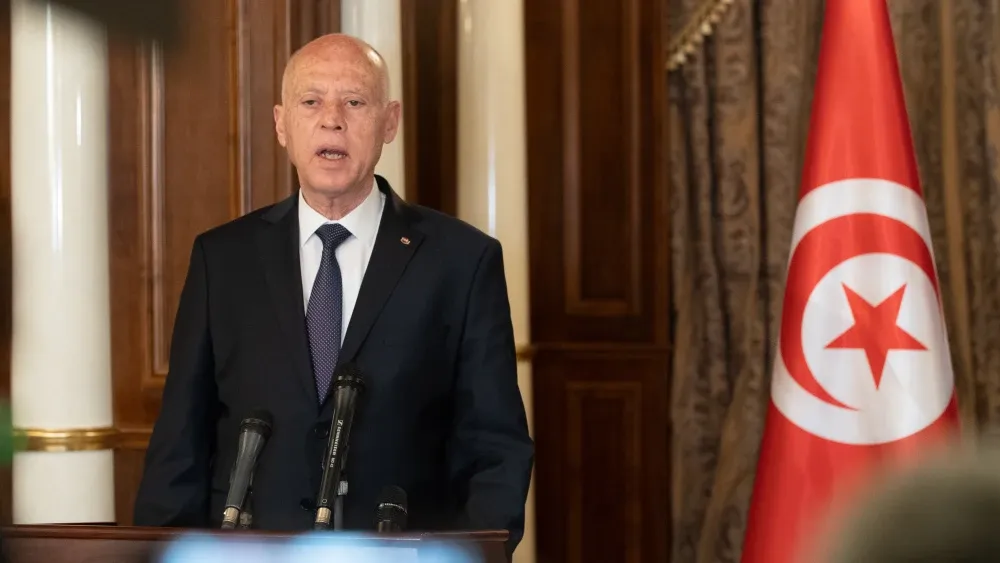 By: Amine Ayoub Tunisia, once hailed as the sole success story of the Arab Spring, is at a critical crossroads. The democratic dream that bloomed in 2011 is now withering under the rule of President Kais Saied. His power grab in July 2021—dissolving parliament, consolidating all power, and ruling by decree—has transformed a budding democracy into an autocracy. Why it matters: Tunisia's democratic backsliding jeopardizes U.S. and European investments in regional stability and counterterrorism. Strategic implications: Tunisia's authoritarian shift threatens to unravel a decade of progress, undermining the freedoms Tunisians fought for in 2011. The stakes: A free Tunisia could model democracy for a region grappling with authoritarianism, while a repressive regime risks fostering extremism and instability. -
The U.S. has a moral and strategic duty to support Tunisia's democratic aspirations. -
Simply put, democracy in Tunisia is not just about ideals—it is about hard national security interests. To read the full article, click here. | | | | | We appreciate your continued support for the Middle East Forum as we deliver critical analyses on Middle Eastern affairs. If you found this edition of the Dispatch useful, please share it with others and be sure to let us know your thoughts on our coverage via the comments feature. Sincerely, Winfield Myers
Managing Editor, Middle East Forum
Director, Campus Watch | | | | Was this edition useful?  

Your email will be recorded and shared with the sender |        MEF, an activist think tank, deals with the Middle East, Islamism, U.S. foreign policy, and related topics, urging bold measures to protect Americans and their allies. Pursuing its goals via intellectual and operational means, the Forum recurrently has policy ideas adopted by the U.S. government.
Copyright © 2024 Middle East Forum, All rights reserved.
Our mailing address is:
Middle East Forum
1650 Market Street, Suite 3600
Philadelphia, PA 19103 | | | | | Powered by 
| | This email was sent by Middle East Forum via Axios HQ | | | |
0 коммент.:
Отправить комментарий